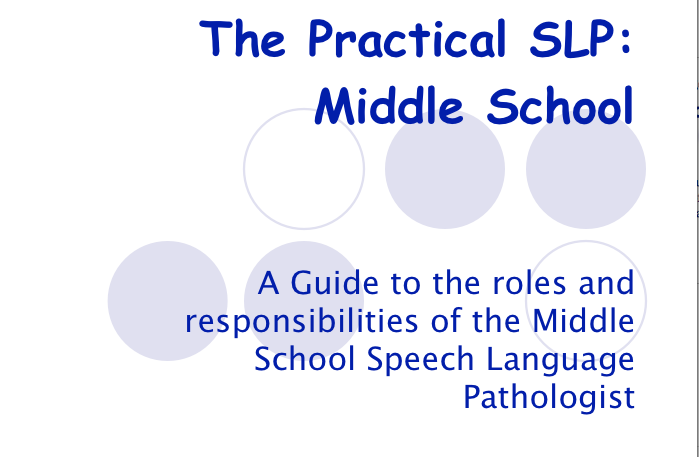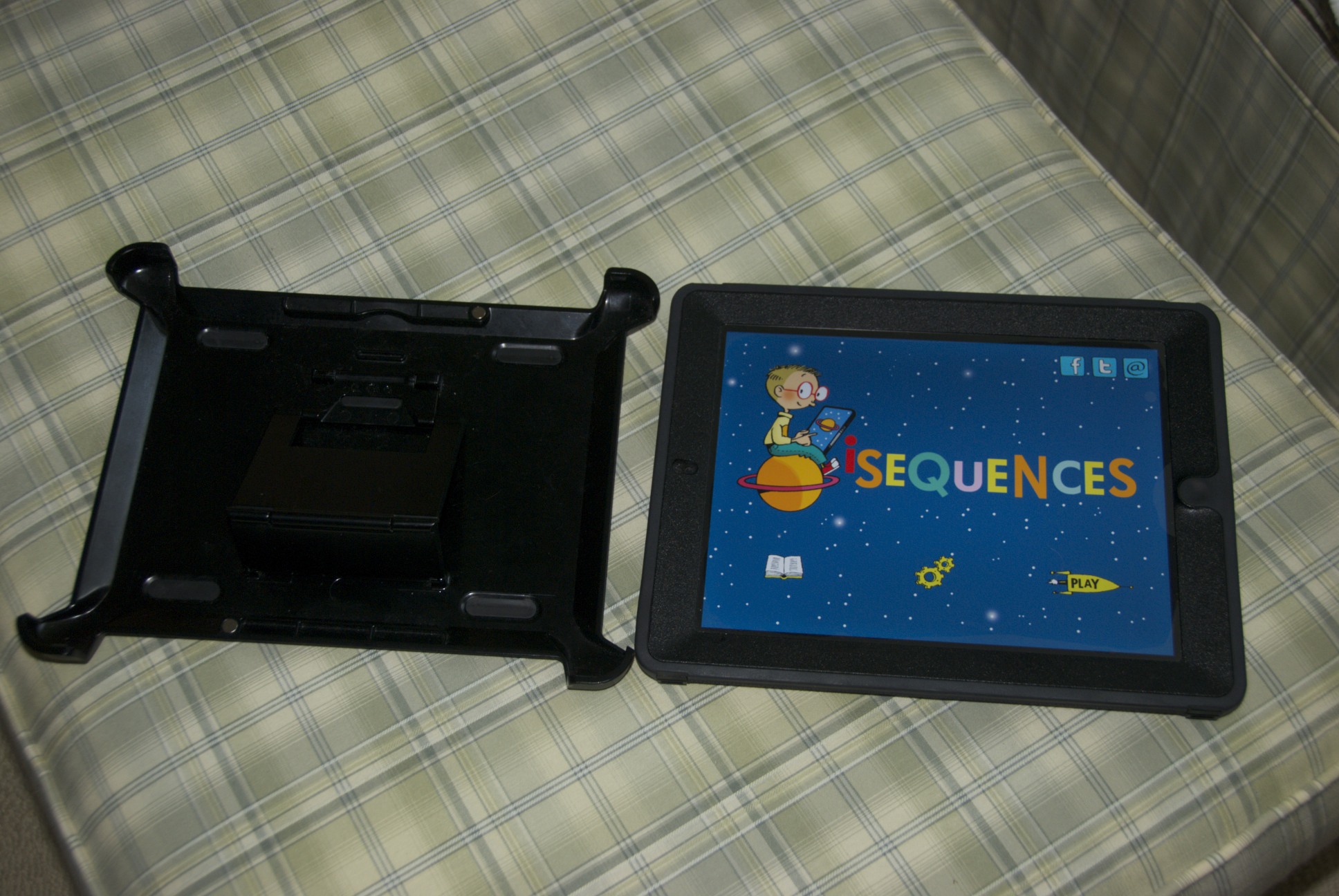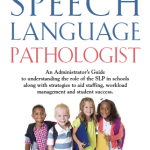SLP Chat
This will be a place where therapists can share ideas, problem solve and express concerns. Lets work together to make our jobs easier!
Teresa
Applying to Grad School for Speech Language Pathology: How Do I Get My Application to Stand Out?
By Guest Blogger Kayla Perry
The thought of applying to graduate school is stressful not only to me, but to many of my fellow soon-to-be graduating peers. When I first decided on a major, the average GPA requirement for Speech Language Pathology graduate programs in the New England area was 3.2, which I thought was definitely achievable. As I enter my senior year of undergrad, the average GPA that graduate schools in New England are looking for is now 3.8. My current GPA is a 3.6, not the worst, but not the best either. A lower GPA also means that I must do well on my grad school entrance exams. This is a concern for me because I don’t have the best track record taking standardized tests. I up to the challenge and with some study and practice, I hope to do well.
My concerned hightened when none of the students in my program who applied to graduated school this past year got accepted. So the dilemma becomes, what to do if I don’t get into graduate school upon my first round of applications?
4 out of the 5 students in my program who did not get accepted into graduate school this past year, have been accepted as speech language assistants in various school systems around the area. I’m now questioning if becoming and SLP-A is going to be my only option a year from now. Will working as an SLP- A give me more practical experience the field of speech and language and help to guarantee me a grad school slot the following year? Are graduate schools even looking for this type of experience?
I would appreciate any suggestions on what I could do that might give me an edge during the application and review process. I’ve been doing observation hours at a variety of locations, which I am hoping will look good on an application.
Although I don’t know what the future holds for me at this point in time, I plan continue to pursue my goal of becoming a Speech Language Pathologist. I will keep on doing what I’m doing, stay involved with National Student Speech Language Hearing Association, study/practice for the GRE and look for opportunities that will make my graduate school application stand out.
Related Articles: The SLP and Grad School Admission, How Can I Look Impressive?
The Practical SLP: Middle School
Back in 2007, when I was taking a computer course and needed to put some teacher training together I chose to write about the roles and responsibilities of the School Speech Language Pathologist. It was a nice introduction for the teachers and for those who paid attention, I think they learned something about our field. This was just before RTI, core curriculum and the new teacher evaluation process took over. Reflecting on what I wrote 6 years ago, our job hasn’t changed that much…..it’s just been added to. So take a look, please note the word “Practical” in the title. At the time when all these changes were looming I thought it was appropriate (and still do). The Practical SLP powerpoint 2007 copy
Teresa
Protecting your electronics.
When I purchased my iPad, I knew I wanted to use it in therapy. I also knew I did not want to have to worry about it breaking, being dropped or just plain mishandled. Walking out of the Apple Store, I walked right over to the cart in the mall that installed Ghost Armor. For those of you who don’t know Ghost Armor is a plastic sheet that is applied to the screen of your phone or iPad. I’ve used Ghost Armor on my phone for years and never experienced a cracked or scratched screen. Ghost Armor has to be cured under a black light for a few moments but they will usually do it while you wait.
For the first few days I used my iPad without a case, then with a simple but cute notebook case borrowed from a friend. I also tried the traditional cover. I was just not comfortable handing over an expensive piece of equipment to a 5 year old. So I needed to find a better solution that would allow me to relax.
After a little bit of research, I went with with the big kahuna of iPad cases, the Otter Box. It cost a little more but was worth every penny since all my worries of iPad destruction went away. Given it has a plastic cover, my Ghost Armor was probably unnecessary. I now have no qualms about handing my iPad over even to my most youngest or lest coordinated students and letting them pass it to each other. The other good thing about the Otter Box is that I can use just about anything to clean it. Given that everyone is touching it, breathing on it, coughing on it, and in our field sometimes drooling on it, I know I can clean it with a sanitizing wipe or spray easily.
One questions therapists have raised is if there is distortion to the screen when using an Otter Box Case. I’ve never experienced distortion or inaccuracy when touching the iPad. The Otter Box also has a simple prop up stand that adjusts to two levels, one is perfect for typing.
If you really want to feel your electronics are protected when your students are handling them, an Otter Box is the way to go. I’ve since handled other cases. I just don’t think they would provide the same protection if a child was to drop the iPad/iPhone. Yes the Otter Box makes the iPad somewhat bulky but it still easily slips into my bag and I don’t have to worry about how I stow it.
SLP’s tell me everything you do!
I want to put together list of all the duties we as slp’s perform in the public school setting. Below is a list that I quickly put together (please excuse the format i am working on an ipad). I am sure i’ve forgotten a task or two. Please add any paperwork duties I might have overlooked. If you do something unique to your setting I want to hear about that. If you are required to perform other duties not related to slp mention those. Comment below or email me at theschoolspeechtherapist@gmail.com. Thanks in advance for your input. I am hoping to add time the duties take in order to help explain workload vs caseload.
Assessment
Direct service
Consult
Classroom service
Paperwork-listed below
Daily notes
IEP (full or partial responsibilities)
Evaluations (amount varies depending on the severity of the student 3-12 pages for a range)
Progress reports
Data collection
Medicaid paperwork (this can be quite significant depending on the school setting)
Attendance
Attend meetings
Create and manage schedule
Fetching students
Adding in students as needs increase over the year
Share the highlights of your year
Well another year is almost over here in the Northeast. Many schools are out but because of snow, religious holidays and professional days, one of my districts is in till June 28th. I haven’t been in school this late since 1974, when I was a student in Detroit Public Schools the year of the strike. Back then I was brainwashed (not by my parents) to believe it was the teachers fault but now I realize it was much more complicated than that. That’s a story for another time. Anyway, come July that didn’t matter, I was a kid and had to go back to school after the 4th of July holiday. We weren’t a happy bunch and I doubt we got much done.
I expect this late last week of school will be fairly hard for teachers, students and parents to be productive. I would guess that there will be a lot of extra recess, especially if the warm weather persists. Since were usually not in school this late our schools are not air conditioned and most classrooms become bake ovens the minute the sun hits the windows.
As for me, I’ve been extremely busy up until last Thursday when I attended my last meeting. I had a banner year, completing 55 assessment between my three jobs. I wrote 5 in the last week and I am toast. I love assessing kids but this last push was a little draining. It’s been very hard to get motivated to write my last 10 progress reports. I’ve also seriously ignored my blog.
As I reflect on the year, other than maybe giving away a little too much service, I’m pretty happy with my work this year. I juggled two consulting jobs on top of my part time job. The teams I worked with were friendly, knowledgeable and accepting of a new person coming in. I did more evaluating than therapy, which is the way I really want to go as I reach my later years as a therapist. I found my skills were flexible enough to meet the needs of kids ages 2.8 to 18. I was busy all year long, However, the time factor kept me from reaching all my professional goals. I just don’t mean the one set up at school but my personal professional goals.
I think it would be interesting to share success stories that happened this year and how you achieved that success. What are your plans for next year? Is there something special you want to do? How are you going to achieve that goal. Is there something that didn’t work out that you are going to change?
I was going to create a poll but if your responses are in the comment section then we can all share in your success and share ideas.
Hope everyone has a fantastic summer. Relax and do something creative:)
Article Review: How Well Can Children Recognize Speech Features in Spectrograms? Comparisons by Age and Hearing Status
Article Review
By Guest Blogger Kayla Perry
Title of Article
How Well Can Children Recognize Speech Features in Spectrograms? Comparisons by Age and Hearing Status
Author: David J. Ertmer Purdue University, West Lafayette, IN
Synopsis: Real-time spectrographic displays (SDs) have been used in speech training for more than 30 years with adults and children who have severe and profound hearing impairments. Despite positive outcomes from treatment studies, concerns remain that the complex and abstract nature of spectrograms may make these speech trainingaids unsuitable for use with children. This investigation examined how well children with normal hearing sensitivity and children with impaired hearing can recognize spectrographic cues for vowels and consonants, and the ages at which these visual cues are distinguished. Sixty children (30 with normal hearing sensitivity, 30 with hearing impairments) in 3 age groups (6–7, 8–9, and 10–11 years) were familiarized with the spectrographiccharacteristics of selected vowels and consonants. The children were then tested on their ability to select a match for a model spectrogram from among 3 choices. Overall scores indicated that spectrographic cues were recognized with greater-than-chance accuracy by all age groups. Formant contrasts were recognized with greater accuracy than consonant manner contrasts. Children with normal hearing sensitivity and those with hearing impairment performed equally well.
Full article was published in the Journal of Speech, Language, and Hearing Research Vol.47 484-495 June 2004. doi:10.1044/1092-4388(2004/038)
© American Speech-Language-Hearing Association
Summary
Although there have been positive outcomes from treatment studies regarding the use of spectrograms in speech training, there is speculation over whether or not spectrograms are suitable speech training aids to use with children. This study examined how well children with normal hearing sensitivity and children with hearing impairment can recognize spectrographic cues for vowels and consonants and the ages in which these visual cues are distinguished. There were sixty children involved, thirty of which had normal hearing sensitivity and thirty of which had hearing impairments. They were then broken up into three age groups (6-7 years, 8-9 years and 10-11 years). They were previously familiarized with the spectrographic representations and characteristics of the selected phonemes. The children were tested on their ability to select a match for a model spectrogram based on three choices. The results indicated that all of the age groups recognized the spectrographic cues with greater- than- chance accuracy. Overall, both children with normal hearing sensitivity and children with hearing impairments preformed equally.
Class Comparison
In class, we have studied spectrographic representation of various phonemes. In this study, the children had to identify various phonemes on spectrographic displays. These familiar phonemes included phonemes from various consonant manner classes, including stops, nasals, fricatives, affricates, glides and liquids and phonemes from three vowel categories including point, central and middle. In class, we have viewed and discussed the structure of both the consonant manner classes and the vowel categories. The children had to identify vowels, which means that they had to be able to recognize the formants and the formant transitions. They also had to identify the different consonant manner classes and the specific characteristics that come with each of those spectrograms. For example, in both our class time and the study, they had to be able to recognize the stop gap, release burst and formant transition in a spectrogram for a stop. Another comparison to our class time, are the techniques that are used to remember the characteristics of specific phoneme spectrograms. In class, we were given some ways to remember how to identify frication and noise in spectrograms (tree bark). In the study, the children were given some terms to help them identify certain characteristics (fat bushy, skinny bushy). These terms used are in layman terms and often make it easier for individuals to understand and recognize the characteristics.
Critical Opinion
Overall, I think that there were a few things in this study that could use some improvement. First of all, I believe that there are some things regarding the training procedure that could use some improvement. They began by projecting various spectrographic displays for the children and pointing out the characteristics of each. Then, they instructed the children about specific consonant and vowel groups and described each one individually to the child. Then they provided the child with analogies to help them recognize the certain characteristics to then be able to identify the phoneme presented. I believe that in the process of training the children, they may have created a situation in which the children memorize the characteristics of the spectrogram, instead of actually getting a full understanding of the information and phoneme that they were looking at. Also, they did mention that the age groups were chosen based on the fact that the children were elementary school age and at an age in which they could sustain attention during the training and procedure. I think they should have included children under the age of 6, because there are children younger than 6 who receive speech services, who may have to use spectrographic displays in their treatment. Overall, I think this article and study was successful, especially considering young children were the subject. There are a few things that I think they could have done differently, but in conclusion this was an effective study in finding that spectrographic displays are suitable speech training aids for children.
Speech Language Pathology Humor……..A linguistic dissection of 7 annoying teenage sounds
I will be the first one to admit most Speech Language Pathology Humor is pretty lame. However, I came across this article and short video and got a huge laugh out of it. Some day when I have time I’ll have to write an article on the humorous side of our profession. We all know the way our field is going we all need a good laugh.
The SLP and Grad School Admission: How can I look impressive?
I have had a lot of response to my article The SLP and Grad School Admission. Does anyone know what SLP graduate schools are looking for in candidates. I’ve had several perspective grad school candidates ask what they can do to make their applications/resumes stand out. I would love to hear from anyone with this experience, knowledge or suggestions. You can either comment here or email The School Speech Therapist at theschoolspeechtherapist@gmail.com
Thanks
Teresa
The SLP and Grad School Admission
*****Sorry it has been so long since my last submission. What can I say it’s been one assessment after another. Thought I saw the light at the end of the tunnel but the tunnel got several assessments longer last week. Take a look at my article, is this something you’ve heard about?
A friend’s daughter is an undergraduate student in speech language pathology, finishing her junior year. Yesterday she mentioned that none of the seniors in her daughters program got into grad school. I was rather surprised at that statistic. Of coursed she probed be about working as a speech language pathology assistant while waiting to get into grad school. I explained to her how assistants worked and how they were paid around here.
I think this situation should be a little concerning to all of us. First, I am a little disappointed for my friend’s child who wants to go on to grad school to become an SLP but will probably have to delay that dream a year or so. Second, if there are a lot of people holding undergraduate degrees in Speech Language Pathology the assistant jobs might be flooded. We all know that speech language pathology assistants can not and should not be working without direct supervision from a speech language pathologist. Schools are also slowly learning that assistants are not always the best bang for the buck. Reason for this is they have to split the kid services, not to mention assistants do not to testing or paperwork and the therapist still does most of the planning. Speech therapy assistants will probably make less than a first year teacher. Not nearly enough to tackle those school loans. Many of these students may end up waiting tables while waiting to get into grad school. Third, many school systems are starting to see the light in regards to caseload and workload but they can’t find the therapists to fill there needs. If there are not enough people graduating from grad programs (a stat I do not have) caseload numbers will remain high.
This may sound absurd but there is also the slight chance that at some point bachelors level training will be accepted. Especially if they can’t find masters levels Speech Pathologists to fill the void. Given what is going on in education with lowering the overall standards it’s not as far fetched as you might think. I doubt ASHA would even get a say in a decision like that. I attended one of the first combined undergraduate/graduate programs in the country, many many years ago. Prior to that most SLP’s held bachelor degrees. Those bachelor level therapists were grandfathered in.
I found this blog article written during the last ASHA Convention What Are My Chances of Getting Into Grad School For SLP? The statistics were more staggering than I thought (but make sure you read the update at the bottom of the article, many apply to more than one program so the data is skewed making the situation not as bleak). Based on the data in this article it appears that colleges are being a little reckless, almost promising something they can’t deliver. I also have to wonder if there is a hidden agenda here. Why would colleges be preparing so many at the bachelor level when a graduate degree is necessary but unavailable to many? I know for a fact that my friend was never told the statistics around getting in to grad school for speech language pathology. If she had I am almost sure her daughter would have considered other avenues or a least a minor degree with some potential.
Despite these statistics, Speech Language Pathology is still considered one of the best professions and is often written up in the media. Are the statistics really as bad as proclaimed in the article mentioned above? Perhaps the mainstream media didn’t get the memo. If you’ve had experience with this please comment below.
Schools need a timeout…….
I recently found this opinion article through the Race to Nowhere Facebook page. “Schools need a timeout on standardized tests”
This is an opinion piece by Joshua P. Starr, superintendent of Montgomery County Public Schools in Maryland. Sometimes others say the exact things you are thinking. There are three sections in his article that really struck a cord with me.
“Most U.S. public school systems are attempting to implement at least three things at once right now: revamped accountability measures, reforms as part of the federal Race to the Top program and the Common Core State Standards. This is simply too much at one time.”
I’ve worked in a few different school systems the past 7 or so years and all the changes are just too much at once. When, not if (in my opinion) the new reforms fail there will be no way to figure out which parts work and which parts don’t. This has been the history of failing education reforms. Schools tend to change things dramatically rather than work the problem.
“But these same state-level departments have been hurt by the recent fiscal crisis. Moreover, they are beholden to legislators and executives whose assumptions about public education make them more likely to endorse a continued over-reliance on standardized tests to evaluate schools and educators.”
Schools have not been given the funding, time or training to make many of these changes possible. The people making the decisions on curriculum, funding and judging success probably have little background in child development and education. In my opinion, child development is hugely overlooked and that’s one of the reasons our special education numbers are so big.
“This includes teacher evaluation systems that rely too heavily on individual student performance on the current state standardized tests — a practice I vehemently oppose.”
Classrooms and kids are more than just numbers and data. If one teacher has more special education students, more kids in crisis or more kids without home support, their scores on any classroom assessment are going to be lower no matter how gifted the teacher is. There has to be a better way.
I’m not happy with the changes I’m seeing in education and I know it is affecting our students in a negative way. In general, I see a lack of memory skills, lack of automaticity with facts and general information, poor phonological skills, decreased processing speeds, poor critical thinking skills and a general lack of background knowledge with typical students. Schools are so worried about taking data (because they have to) that key teaching opportunities are missed or there is no time in the day to take them. Changes are needed, but across the board and all at once isn’t the answer. Students and schools in different areas of the country have different needs and different problems. Some school systems are actually dumbing down their curriculum to meet Common Core Standards, others are trying to figure out how they can do this all at once and a few schools are just saying we can’t do this and handing themselves over to the state.
Schools need good curriculums to turn out good productive citizens. Losing time to practice test taking and learning a curriculum based upon a test is not going to improve or prove anything.









